
The Channel Islands are an archipelago in the English Channel, off the French coast of Normandy. They include two Crown Dependencies: the Bailiwick of Jersey, which is the largest of the islands; and the Bailiwick of Guernsey, consisting of Guernsey, Alderney, Sark, Herm and some smaller islands. They are considered the remnants of the Duchy of Normandy and, although they are not part of the United Kingdom, the UK is responsible for the defence and international relations of the islands. The Crown dependencies are not members of the Commonwealth of Nations, nor have they ever been in the European Union. They have a total population of about 171,916, and the bailiwicks' capitals, Saint Helier and Saint Peter Port, have populations of 33,500 and 18,207, respectively.
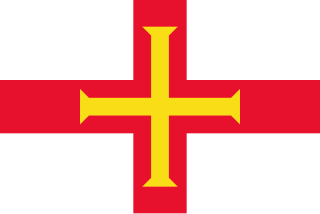
Guernsey is an island in the English Channel off the coast of Normandy that is part of the Bailiwick of Guernsey, a British Crown Dependency.

Alderney is the northernmost of the inhabited Channel Islands. It is part of the Bailiwick of Guernsey, a British Crown dependency. It is 3 miles (5 km) long and 1+1⁄2 miles (2.4 km) wide.

The Crown Dependencies are three island territories in the British Islands that are self-governing possessions of the British Crown: the Bailiwick of Guernsey, the Bailiwick of Jersey, and the Isle of Man. They are not part of the United Kingdom (UK) nor are they British Overseas Territories. They have the status of "territories for which the United Kingdom is responsible", rather than sovereign states. As a result, they are not member states of the Commonwealth of Nations. However, they do have relationships with the Commonwealth and other international organisations, and are members of the British–Irish Council. They have their own teams in the Commonwealth Games.

The Bailiwick of Guernsey is one of three Crown Dependencies.

The Scout Association of Hong Kong is the largest scouting organisation in Hong Kong. Scout training was first introduced in Hong Kong in 1909 and 1910 by the Protestant based Boys' Brigade, Chums Scout Patrols and British Boy Scouts. The Catholic St. Joseph's College, formed its Boy Scout Troop in 1913, and registered with the Boy Scouts Association of the United Kingdom in 1914. The Boy Scouts Association formed its Hong Kong Local Association in July 1915 which became its Hong Kong Branch. After changes to the name of the United Kingdom organisation in 1967, the branch name was changed to The Scout Association Hong Kong Branch. In 1977, The Scout Association of Hong Kong was constituted as an autonomous association and successor to The Scout Association's Hong Kong Branch and became the 111th member of the World Organization of the Scout Movement (WOSM) in 1977.

Youlbury Scout Activity Centre is one of a number of The Scout Association's National Scout Activity Centres in the United Kingdom and is the oldest permanent Scout campsite in the world.

The Brownsea Island Scout camp was the site of a boys' camping event on Brownsea Island in Poole Harbour, southern England, organised by Lieutenant-General Baden-Powell to test his ideas for the book Scouting for Boys. Boys from different social backgrounds participated from 1 to 8 August 1907 in activities around camping, observation, woodcraft, chivalry, lifesaving and patriotism. The event is regarded as the origin of the worldwide Scout movement.

Scout Adventures are a network of activity centres run by The Scout Association. They offer outdoor facilities, adventurous activities and experiences for members of the Scout Association, other youth organisations and school groups. The centres typically have capacity for hundreds of Scouts simultaneously, often including indoor accommodation in addition to camping. Staffed by qualified instructors, they offer adventurous activities and training for adult volunteers and young people following the badges of the Scout programme.
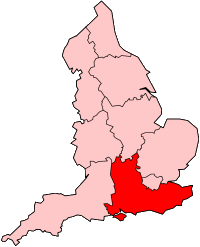
Scouting in South East England provides an overview of Scouting activities in the governmental region of South East England. The largest number of Scouts and volunteer leaders in the region is linked to the Scout Association of the United Kingdom, while there is also a presence of traditional Scouting groups, such as the Baden-Powell Scouts' Association. The Scout Association administers the region through 9 Scout Counties, overseen by a regional commissioner, which follow the boundaries of the ceremonial counties they exist within. There are also a number of Scouting clubs within Universities in the region which are affiliated to the Student Scout and Guide Organisation.
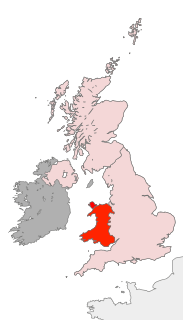
Scouting in Wales provides an overview of Scouting activities in Wales. Scout troops have existed in the country since 1908 with the largest number of Scouts and volunteer leaders today linked to the Scout Association of the United Kingdom. This is done through ScoutsCymru, the Welsh Scout Council who split the region further into four regions and a total of 12 Scout Areas. In addition to the Scout Association, there are also traditional Scouting groups belonging to the Baden-Powell Scouts' Association and a number of Scouting clubs within Universities which are affiliated to the Student Scout and Guide Organisation.
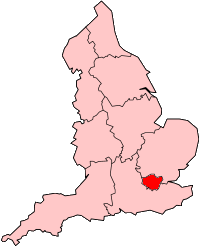
Scouting in the region of Greater London is largely represented by The Scout Association of the United Kingdom and some Groups of traditional Scouting including the Baden-Powell Scouts' Association.
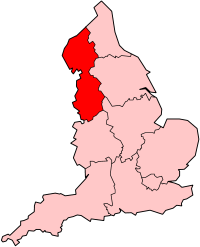
Scouting in North West England is about Scouting in the official region of North West England. It is largely represented by the Scout Association of the United Kingdom and some Groups of traditional Scouting including the British Boy Scouts and British Girl Scouts Association, Baden-Powell Scouts' Association and the Federation of European Scouts.

Scouting in Yorkshire and the Humber is largely represented by the Scout Association of the United Kingdom and some Groups of traditional Scouting including the Baden-Powell Scouts' Association.
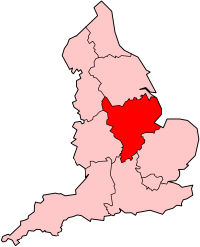
Scouting activities can be found throughout the English region of the East Midlands. The largest number of Scouts and volunteer leaders in the region is linked to the Scout Association of the United Kingdom, while there is also a presence of traditional Scouting groups, such as the Baden-Powell Scouts' Association. The Scout Association administers the region through five Scout Counties, overseen by a regional commissioner, which largely follow the boundaries of the ceremonial counties they exist within although in Lincolnshire the former Humberside county is still used. There are also a number of Scouting clubs within Universities in the region which are affiliated to the Student Scout and Guide Organisation. Scouting organisations at every level of the hierarchy also own and operate campsites and activity centres in the area for the benefit of Scouts, Guides and other youth groups.

Scouting in West Midlands provides an overview of Scouting activities in the governmental region of the West Midlands. The largest number of Scouts and volunteer leaders in the region is linked to the Scout Association of the United Kingdom, while there is also a presence of traditional Scouting groups, such as the Baden-Powell Scouts' Association. The Scout Association administers the region through 8 Scout Counties, overseen by a regional commissioner, which follow the boundaries of the ceremonial counties they exist within. There are also a number of Scouting clubs within Universities in the region which are affiliated to the Student Scout and Guide Organisation.
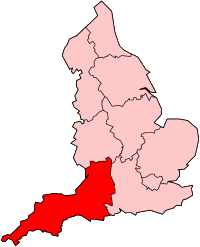
Scouting in South West England is about Scouting activities in the governmental region of South West England. The largest number of Scouts, volunteer leaders and groups are members of the Scout Association of the United Kingdom while there are some traditional Scouting groups such as the Baden-Powell Scouts' Association. The Scout Association administers the region through 7 Scout Counties, overseen by a regional commissioner, which follow the boundaries of the ceremonial counties they exist within. There are six active student associations at various universities in the region, each of which is affiliated to the Student Scout and Guide Organisation (SSAGO).

Scouting in East of England is about Scouting in the official region of East of England. It is largely represented by The Scout Association of the United Kingdom and some Groups of traditional Scouting including the Baden-Powell Scouts' Association.
Girlguiding South West England is one of the nine Countries and Regions of Girlguiding UK. It is further subdivided into 16 Girlguiding Counties and Islands. These are generally not the same as the counties defined by the British government, and in this Region, two of the Islands, Guernsey and Jersey, are not even part of the United Kingdom.
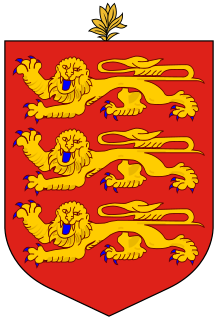
The Bailiwick of Guernsey is a British Crown dependency in the English Channel off the coast of Normandy. As a bailiwick, Guernsey embraces not only all ten parishes on the island of Guernsey, but also the islands of Alderney and Sark – each with their own parliament – and the smaller islands of Herm, Jethou and Lihou. Although its defence is the responsibility of the United Kingdom, the Bailiwick is not part of the United Kingdom, but, as its description suggests, a possession of the Crown. Consequently, though it lies within the Common Travel Area, it was never part of the European Union.


















